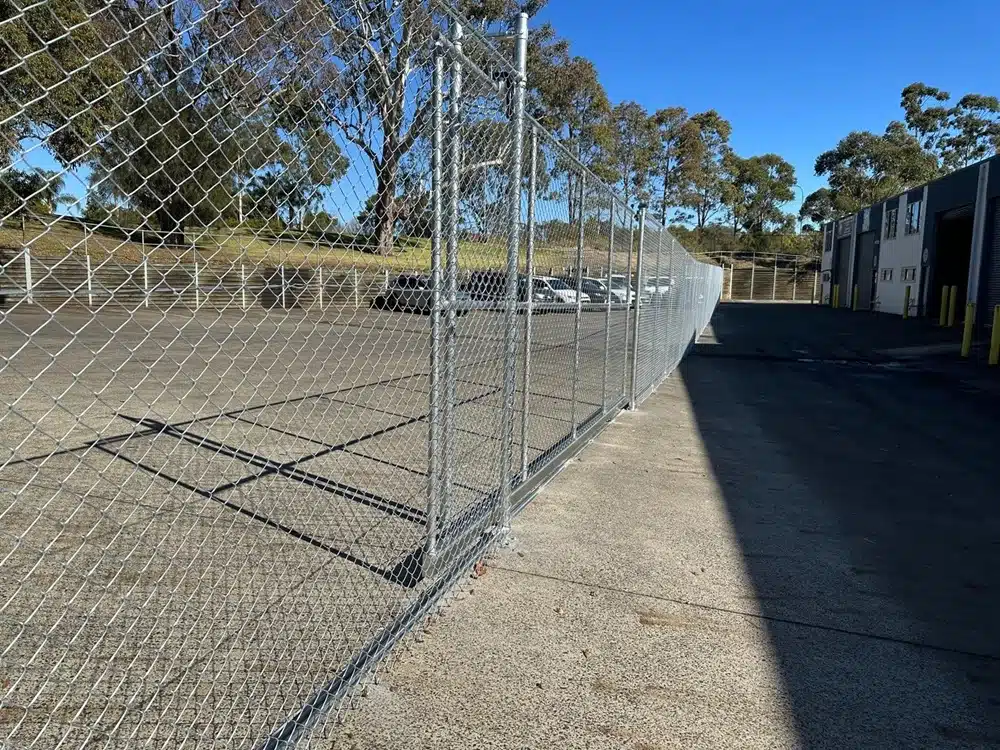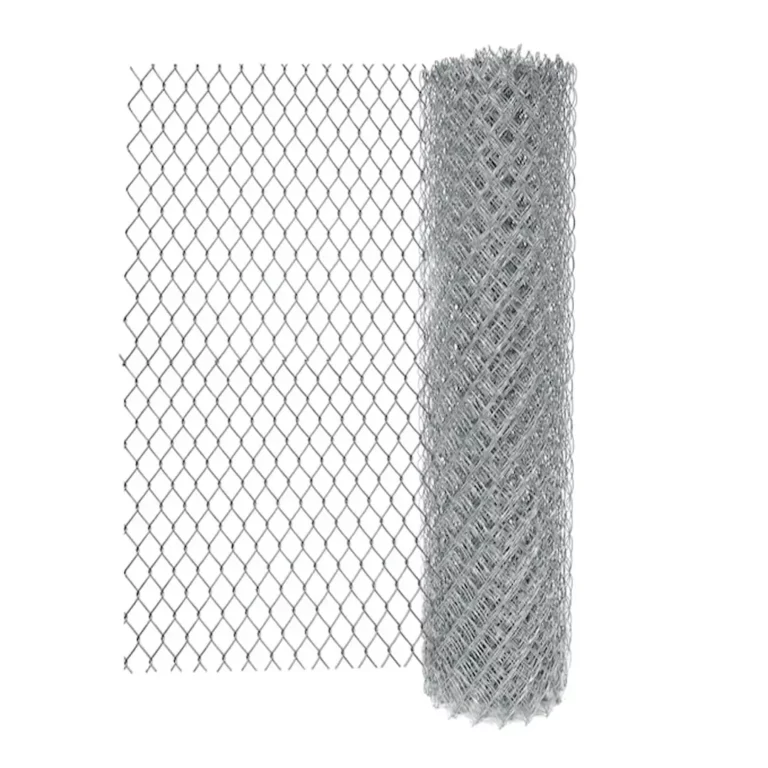Start with proper planning for a successful chain link fence installation.
Check Local Regulations: Confirm height limits, boundary offsets, and zoning laws.
Map the Fence Layout: Use stakes to mark corners, and run string between them to outline the fence line.
Mark Post Locations: Posts should be spaced 4 to 10 feet apart, depending on the fence height and local building codes.
Dig Corner and End Post Holes: These require extra stability—holes should be 18–24 inches deep and 8 inches wide.
Line Post Holes: Dig smaller holes (about 18 inches deep, 6 inches wide) for line posts.
Cold Weather Consideration: In frost-prone areas, dig deeper to prevent heaving.
Install Corner and End Posts First: Set each post into the hole and fill it with concrete to ground level. Use a level to ensure proper alignment.
Let Concrete Cure: Allow 24 to 48 hours for a solid base.
Set Line Posts: Once corners are secure, install intermediate posts following the string line for consistency.
Attach Tension Bands: Slide them over each end and corner post before the concrete fully sets. They will hold the tension bars later.
Add Loop Caps: Install loop caps on top of each post—these support the top rail.
Insert Top Rail: Feed the top rail through the loop caps from one end to the other.
Connect Rails: Use couplers or connectors to join sections, ensuring the rail is level and secure across all posts.
Unroll the Mesh: Start at one end post. Attach the mesh to a tension bar using fence ties.
Secure to Post: Attach the tension bar to the tension bands on the post.
Stretch the Mesh: Use a fence stretcher or come-along tool to pull the mesh tight across the length. This prevents sagging.
Attach to Line Posts: Use wire ties or clips every 12 inches to secure the mesh to each line post.
Top Edge: Use fence ties every 12 inches to attach the mesh securely to the top rail.
Bottom Edge: Anchor with stakes or tension wire to prevent animals from pushing under or digging beneath the fence.
Whether you’re installing a galvanised chain wire fence for durability or a black chain link fence for aesthetics, this fencing type offers unmatched value. It’s ideal for:
Residential perimeters
School playgrounds
Commercial chain link fencing
Warehouse security fencing
Construction site fencing
With options like security chain link fences or chain link fence panels tailored for Sydney’s climate, chain wire fencing remains one of the most reliable solutions for large and small properties alike.
At RWAP, we supply and install premium-quality chain wire fencing Sydney clients can trust. Our products meet Australian standards and are available in galvanised, PVC-coated, and black finish options. We support everything from DIY fencing kits to full commercial chain link fence installation.
Step 8: Install Chain wire fence Gates (if applicable)
Attach gate posts: Gate posts usually have greater sturdiness than regular line posts. Anchor them in concrete, and let them cure completely before hanging the gate.
Hang the gate: Attach the gate hinges to the gate post. Then, hang the gate according to the manufacturer’s instructions. Make sure it swings without obstruction and is level.
By following these steps, you’ll not only ensure a sturdy fence but also enhance the value and security of your property. With proper planning and the right tools, building a chain link fence is manageable as a DIY project. This fence style provides a sturdy, affordable, and low maintenance boundary for your property.
Hiring professional installers to set up a chain-link fence can save time, ensure quality, and relieve you of heavy lifting and detailed alignment work. Here are the main advantages, what to expect from the process, and tips for selecting the right experts:
Time Efficiency: Professional fence installers are well-versed in the process and can often complete it faster than most DIY attempts, especially if they have specialized tools and many team members on the job.
Skill and Precision: Fence installation requires precise measurements and alignment to ensure a long-lasting and visually pleasing outcome. Professionals have experience with these tasks, leading to a straighter, more secure fence with tight mesh and proper tension.
Access to Specialized Tools and Techniques: Installing a chain link fence may require specialized equipment like power augers, concrete mixers, or fence stretchers, which professionals bring to the job. This ensures strong post setting and tight fencing without the need to rent or buy tools.
Compliance with Local Codes and Permits: Professionals often know local codes and permitting requirements. They can manage permits, preventing delays or costly adjustments if the fence doesn’t meet local standards.
Warranty and Peace of Mind: Many fencing companies offer warranties on both materials and labor. This protects you from potential issues, as the company can address any problems with installation or quality during the warranty period.
RWAP chain wire fence supplies manufacture Chain wire fencing on many specifications, such as size in length, width and also different gauges to suit various.

Check Credentials and Reviews: Look for chain wire fencing companies with positive customer reviews, licenses, and insurance. Licensing and insurance are crucial, as they provide assurance that the company is reputable and that you’re protected in case of accidental damage or injuries.
Get Multiple Quotes: Compare quotes from at least three chain wire fencing companies. Look beyond just price—consider their estimated completion time, the quality of materials, and any warranties offered.
Ask About Warranties: Reputable companies typically offer warranties on materials and labor. Make sure to get chain link fencing companies details in writing, as it protects you from unexpected issues down the road.
Request a Timeline and Project Plan: Good chain link fence installers provide a clear timeline and project plan. This helps manage expectations for how long installation will take and ensures you’re both aligned on project details.
Hiring expert installers of chain wire fence offers convenience, professional quality, and peace of mind. The investment often pays off in the long term with a durable, attractive, and properly installed fence.

Contact RWAP today for expert guidance, premium materials, and competitive pricing on chain link fencing in Sydney. Whether you need fencing for schools, warehouses, homes, or industrial facilities—we deliver quality, every time.